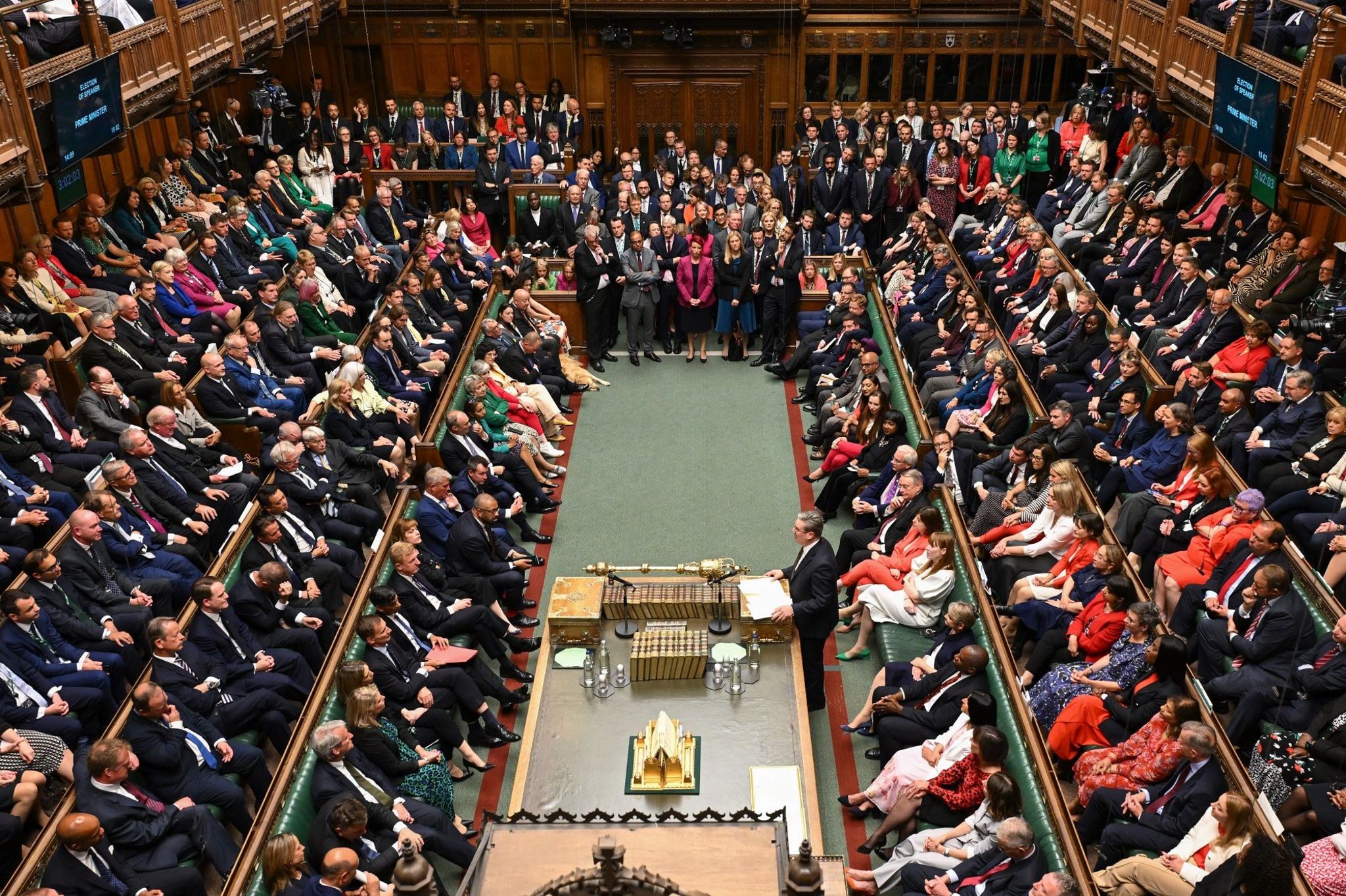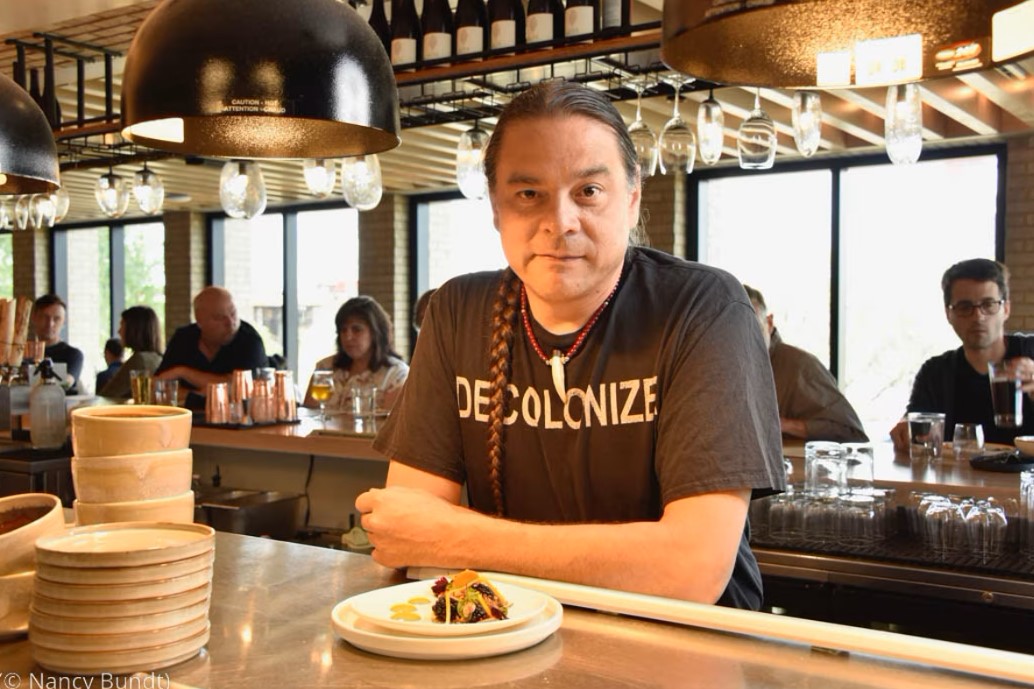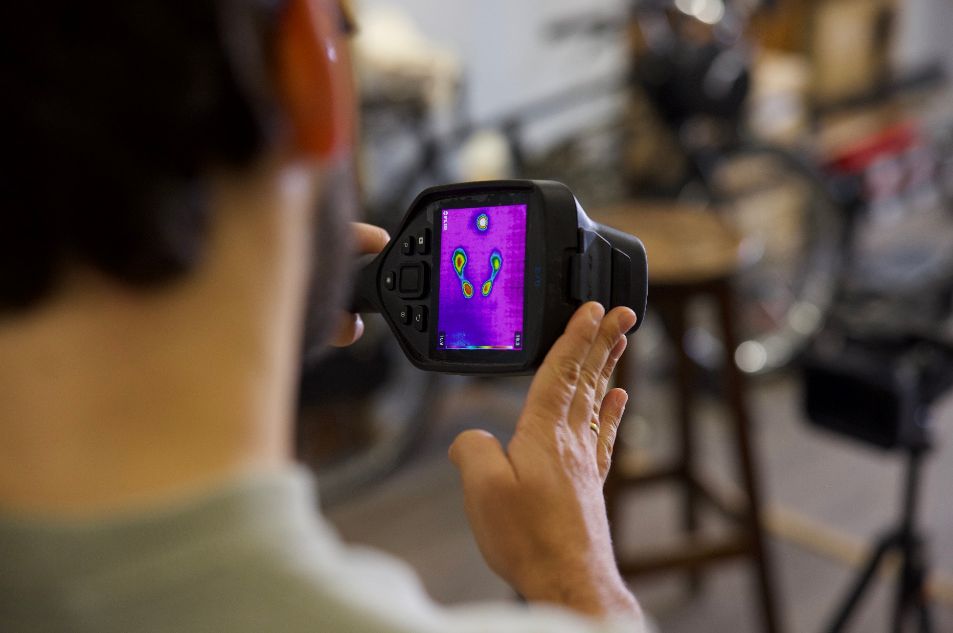Sean Sherman, known as “the Sioux Chef” and founder of the award-winning restaurant Owamni, believes that Native cuisine — in the United States and around the world — can educate people about Indigenous history and cultures.
“I knew Japanese cuisine, North African, all sorts of European recipes,” Sherman SAID, “but I didn’t know anything about my own heritage. That set me on a path of wanting to understand and reconnect.
“I wanted to know what my Lakota ancestors were eating and foraging and harvesting.” For nine years, Sherman has worked to bring decolonized food — recipes that include only ingredients that existed in the United States before European settlers arrived in the 17th century — to communities around the country, with a permanent restaurant location in Minneapolis.
Born in Pine Ridge, South Dakota, Sherman is a member of the Oglala Lakota Tribe — which is part of the Great Sioux Nation — and grew up on the reservation there. He got his first job in a kitchen when he was 13 years old and kept pursuing cooking jobs through his adulthood, rising to become an executive chef when he was 27.
A trip to Mexico in 2014 inspired Sherman to explore Indigenous cuisine in the United States by focusing on the ingredients Native Americans cooked with before Europeans arrived. “It forced me to understand the history of the United States,” he said. “I didn’t realize the vastness of it until I started digging into it.”
After releasing a cookbook in 2017, The Sioux Chef’s Indigenous Kitchen, Sherman wanted to open a restaurant as a “proof of concept,” he says. The result was Owamni, which means “a place of falling, swirling water.” After its opening in Minneapolis in July 2021, the restaurant continues to be widely popular.
Sherman cooks without ingredients introduced to North America by Europeans — no dairy, processed sugar or pork — and instead focuses on locally sourced fare, such as blue corn, sweet potato and bison. He says he’s not trying to recreate what Native cuisine would have looked like hundreds of years ago but “to create a path forward for Indigenous communities and peoples by creating a sense of what is modern Indigenous foods.”
Last year, HE won a James Beard Award for Best New Restaurant — among the highest honours for chefs in the United States — for his work at Owamni. He had previously received two James Beard awards — one for his cookbook and one for his leadership in the industry, including his founding of the nongovernmental organization North American Traditional Indigenous Food Systems (NATIFS).
Through NATIFS, Sherman and his team, led by Dana Thompson, advocate for educating Native youth and connecting Native communities around the country to Native food, in hopes of catalysing healing within those communities. Sherman says he had a vision of creating “a support system for future generations to help steward Indigenous knowledge bases and really focus on developing access to Indigenous foods and developing education around peoples.”
With upcoming partnerships in Alaska, Montana and South Dakota, Sherman and Thompson will recreate the Indigenous food labs that they’ve created in the Minneapolis area. Sherman and Thompson hope to also inspire a model for restaurants everywhere — not only across the United States but around the world — to show chefs and patrons that Indigenous food practices still do exist in their countries.
Several other restaurants have opened in the United States with an eye toward reinvigorating traditional Native cuisine. Cafe Ohlone in Berkeley, California, and Kai in Chandler, Arizona, are two examples of restaurants that use local ingredients and traditional tribal recipes.
“The work was never about myself or trying to create a career path but trying to do something that should have been out there already,” Sherman says. “It wasn’t just needed here, it was needed everywhere.”











